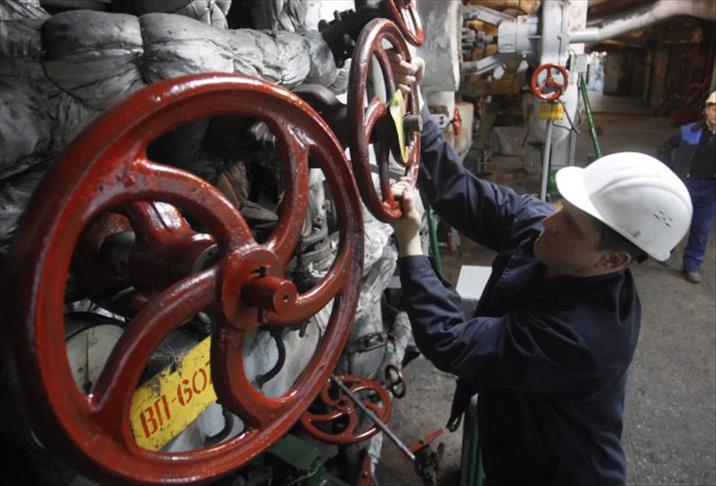
By E. Gurkan Abay
ANKARA
While the European Commission opposes Russia’s South Stream gas pipeline project, certain EU countries like Austria and Italy continue to openly support the world’s most expensive pipeline project, which aims to transport Russian gas by bypassing Ukraine.
For the last two years, Russia has signed bilateral agreements with Italy, Bulgaria, Serbia, Hungary, Greece, Slovenia, Austria and Croatia for the construction of the South Stream gas pipeline, which is estimated to cost nearly US$40 billion according to the Moscow Times. Gazprom recently announced however that it was abandoning construction of the Italian portion of the pipeline.
These agreements were deemed a breach of EU anti-trust law by the European Commission in December. And, in April, following the annexation of the Crimean peninsula by Russia, the European Parliament voted for the South Stream project to be stopped.
Energy and foreign policy expert Sinan Ulgen of the Carnegie Europe think-tank told Anadolu Agency on Friday that the EU’s main concern about South Stream is that the project would increase its dependence on Russian gas. Last year a third of its consumed gas was supplied by Russia.
Ulgen said these concerns soared even more after the annexation of Crimea by Russia in late March.
But despite EU's objection to the project, Austrian gas producer OMV agreed on June 24th to build the South Stream pipeline that would carry more than 60 billion cubic meters of Russian gas to central Europe.
Last Monday, Italy's state secretary for European affairs Sandro Gozi said that Rome would facilitate South Stream’s implementation during its presidency - which started on July 1 - of the European Union.
The pipeline constitutes a strong economic opportunity for the concerned countries as Serbian Foreign Minister Ivica Dacic noted after meeting his Bulgarian counterpart Kristian Vigenin on Thursday, according to Chinese news agency Xinhua.
Russia and Eurasia expert John Lough of the British think tank Chatham House pointed out that the ongoing process of South Stream, despite EU’s official objection to the project, is a reminder of the strength of Russia’s energy diplomacy.
“A South Stream bypass would also mean that Russia could use energy as a tool in its relations with Ukraine without hindrance since Ukraine would no longer be able to hold Russia hostage by potentially redirecting supplies destined for the European market for its own needs,” Lough said.
In 2006 and 2009, Russia accused Ukraine of illegally importing its gas and cut off its gas flows, which affected many European countries as a consequence. In use since 2011, the Nord Stream pipeline which runs under the Baltic Sea from Russia to Germany has partially rectified the problem.
Still, the EU continues to look to reduce its dependency on Russian gas. For instance, the Commission is also quietly pursuing its anti-trust probe into possible market abuses by Gazprom, which could result in a heavy fine.
“A unified foreign policy in energy is among the EU’s main targets,” said Ulgen, adding that, “This would strengthen Europe’s hand against Russia.”
However, Lough underlined that, for all its capacity to buy influence and create chaos in Ukraine, Russia has shown that it needs the EU’s involvement in resolving its gas dispute with Kiev.
“An interdependent energy relationship between the EU and Russia that has so often seemed weighed in Russia’s favor looks less so at present,” Lough said.
Anadolu Agency website contains only a portion of the news stories offered to subscribers in the AA News Broadcasting System (HAS), and in summarized form. Please contact us for subscription options.

